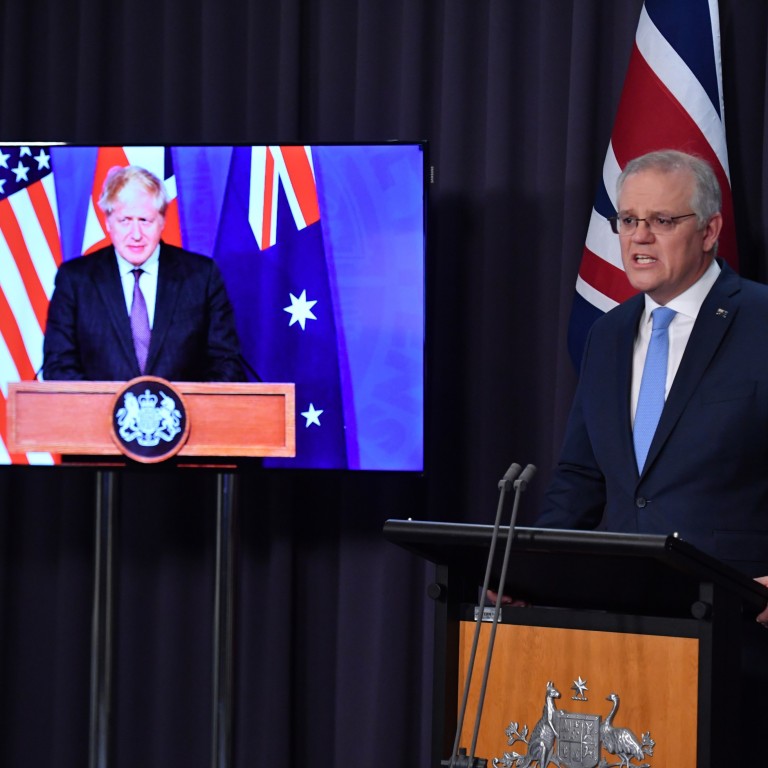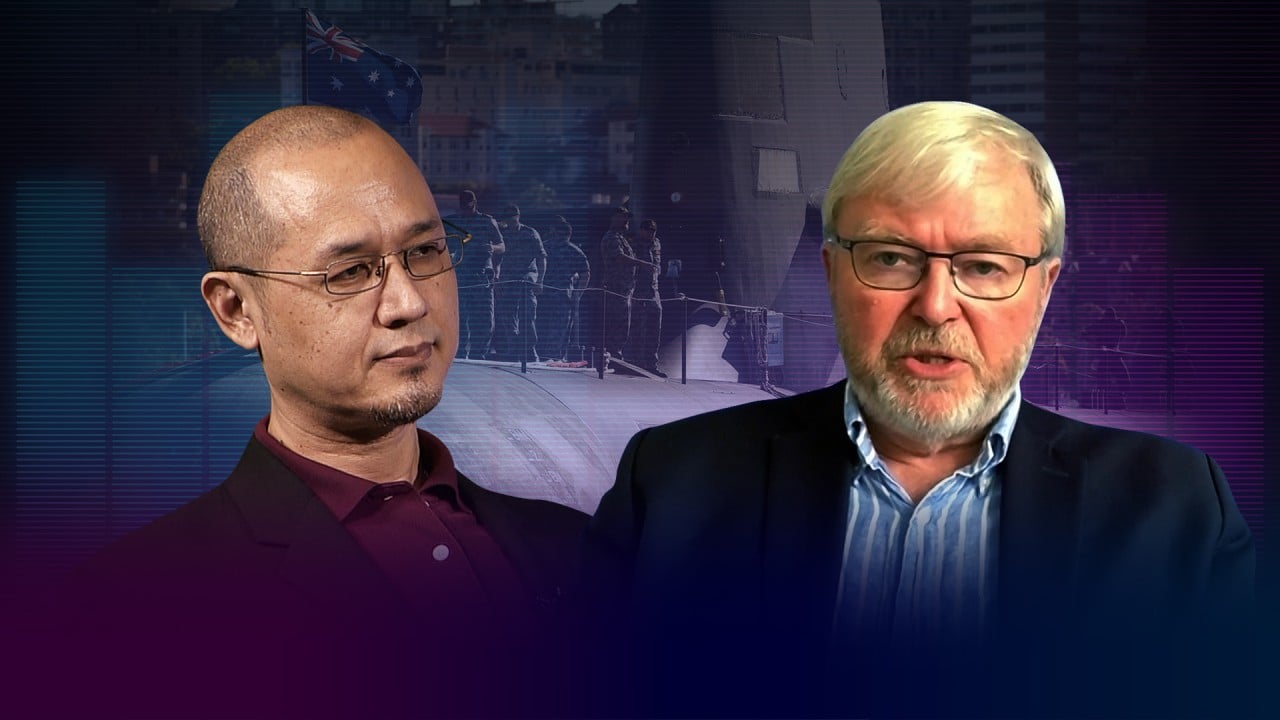
Aukus submarine deal shows a worrying shift in Australia’s foreign policy
- Defence was once an arm of diplomacy but foreign policy is now seen as an arm of defence, which colours all thinking around foreign engagement with Asean
- The deal will significantly affect Australia’s ability to shape regional discussions, particularly on trade
Many a joke-telling session starts with: “Have you heard the one about…?” The latest in Asean is “the one about Aukus”.
Aukus is a product of Australia’s desire to go back to a Western-dominated security environment in Asia. Aukus alliance partners and their supporters are trapped in their own historical bubble. Many of these Western and Japanese policymakers talk and listen only to those who already agree with their view of the world. Thus, the Aukus announcement is a shout in this echo chamber.
Aukus supporters take a groupthink approach and simply cannot see the problem, or solutions, from outside their own perspectives.
The crafting of Australian foreign policy has been slowly transferred to what former US president Dwight D. Eisenhower called the military-industrial complex. This represents a significant change in approach.
Once, defence was an arm of diplomacy, as encapsulated in von Clausewitz’s famous dictum that war is “the continuation of politics by other means”. This has gradually morphed, so that foreign policy is now an arm of defence and this is what colours all thinking around foreign engagement with the Association of Southeast Asian Nations.
The Aukus announcement was not universally welcomed in Australia, either. Apart from the stupidity of delaying submarine acquisition by decades, there are deep-seated concerns about the way the policy change was announced without any consultation.
That changed with the announcement of the Aukus deal. Overnight, hundreds of small businesses in South Australia who had tied their capital investment and growth to the French project were discarded without a thought or any mention of compensation. The day of political reckoning has yet to come.
Kerry Brown, professor of Chinese Studies at London’s Kings College says Aukus is “almost wholly about symbolism”. The “brute fact”, he says, is that China has more options than Australia: “China sits in the centre of the Asia Pacific region, utterly unavoidable, politically and economically. It cannot be wished away. Intentionally or unintentionally, its economic clout and its regional aspirations impact on all those around it.”
In Australia, the Aukus announcement has stirred a dormant beast of anti-nuclear protest. The Australian public’s appetite for a nuclear industry is limited, which is why Australia has closed down a major uranium mine in Kakadu and has not developed any nuclear power options for its coal-dependent electricity grid.
Immediate public opposition has been distracted by the squabbles over how Australian states will open up post Covid-19 but the nuclear discussion will feature in the federal election due in early 2022.
Mike Scrafton, a former adviser to the minster for defence, calls the decision an example of magical thinking. “The magical thinking of the nuclear submarine advocates imbues the vessels with the mystical power that the French placed in the Maginot Line, even though they are only imaginary.
“Unlike the Maginot Line, because the submarines don’t exist, and won’t for decades, if ever, a potential aggressor doesn’t have the incentive to come up with tactical solutions…”
The Aukus announcement is evidence of a very dangerous approach to foreign policy formulation and engagement. Showing the influence of military, rather than diplomatic, thinking, it is a full-frontal attack on the regional architecture of trade deals.
This makes it difficult for Australia to argue for an independent assessment of issues within the region. This is an inevitable consequence when military voices dominate diplomacy discussions.
In the harsh light of reality, China will assess Australia’s acquisition of nuclear power submarines in decades’ time as no more than a paper tiger. But the consequences of such bumbling diplomacy has more significant and immediate impacts on Australia’s ability to shape regional discussions.
Daryl Guppy is an international financial technical analysis expert and a national board member of the Australia China Business Council. The views expressed here are his own


